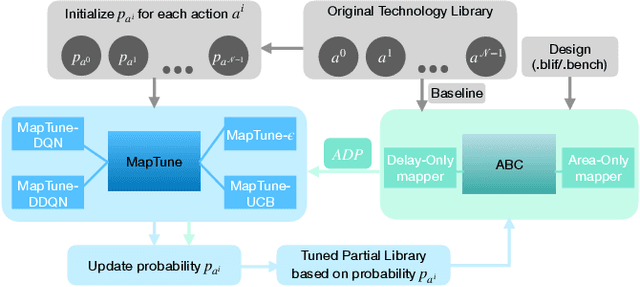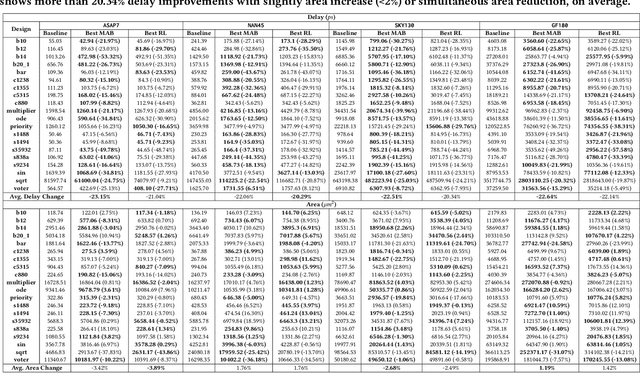MapTune: Advancing ASIC Technology Mapping via Reinforcement Learning Guided Library Tuning
Paper and Code
Jul 25, 2024



Technology mapping involves mapping logical circuits to a library of cells. Traditionally, the full technology library is used, leading to a large search space and potential overhead. Motivated by randomly sampled technology mapping case studies, we propose MapTune framework that addresses this challenge by utilizing reinforcement learning to make design-specific choices during cell selection. By learning from the environment, MapTune refines the cell selection process, resulting in a reduced search space and potentially improved mapping quality. The effectiveness of MapTune is evaluated on a wide range of benchmarks, different technology libraries and technology mappers. The experimental results demonstrate that MapTune achieves higher mapping accuracy and reducing delay/area across diverse circuit designs, technology libraries and mappers. The paper also discusses the Pareto-Optimal exploration and confirms the perpetual delay-area trade-off. Conducted on benchmark suites ISCAS 85/89, ITC/ISCAS 99, VTR8.0 and EPFL benchmarks, the post-technology mapping and post-sizing quality-of-results (QoR) have been significantly improved, with average Area-Delay Product (ADP) improvement of 22.54\% among all different exploration settings in MapTune. The improvements are consistently remained for four different technologies (7nm, 45nm, 130nm, and 180 nm) and two different mappers.
 Add to Chrome
Add to Chrome Add to Firefox
Add to Firefox Add to Edge
Add to Edge